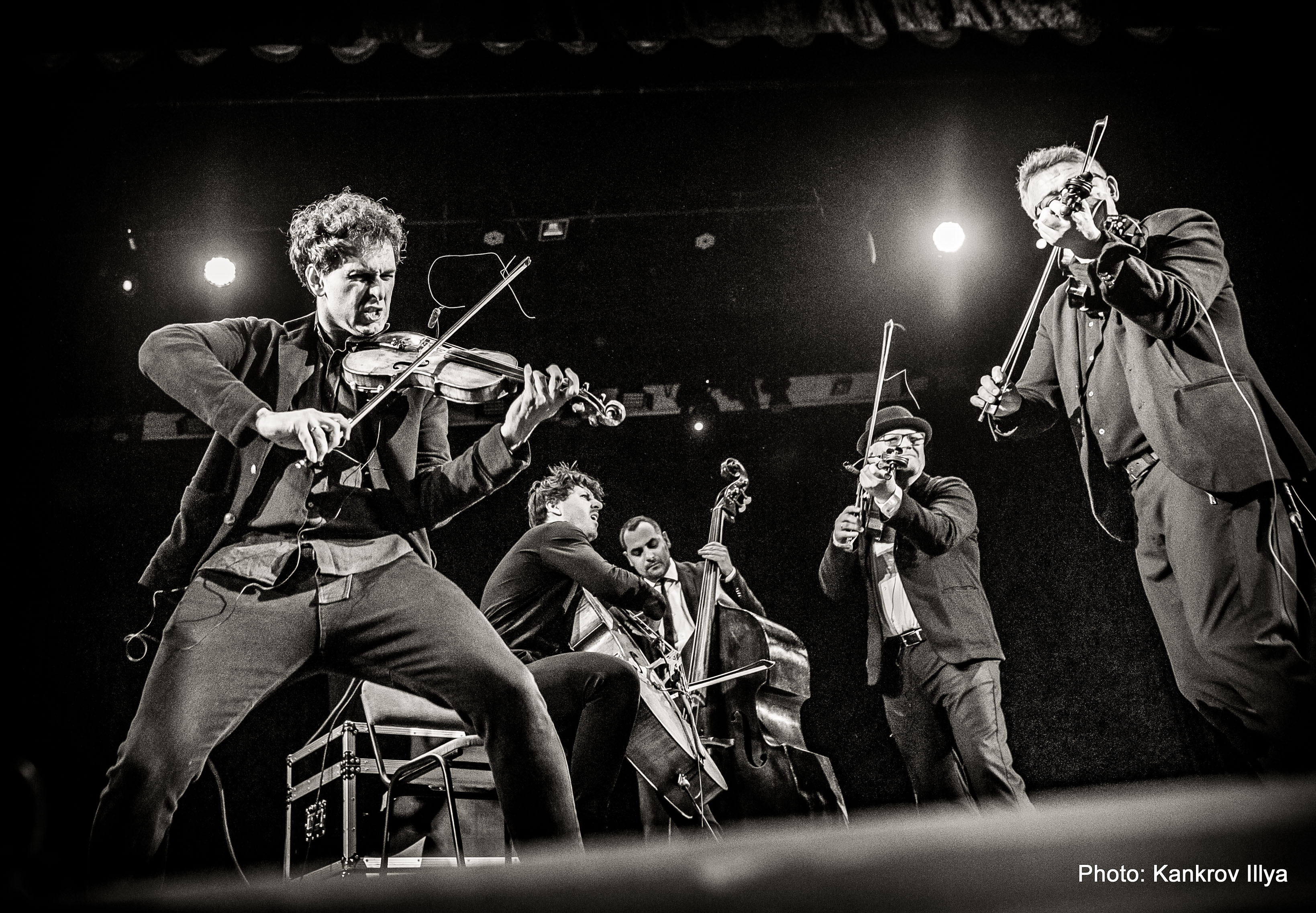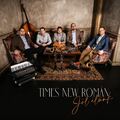The string quintet well-known as VOŁOSI was initiated by an encounter of three traditional and two classical musicians. Their story leads back to the Polish part of the Carpathians, but their virtuous music of joy which travelled the world is also well-known by the Hungarian audience. They have given concerts several times in Budapest, and their common album with Felix Lajko reached the most important world music charts as well.
VOŁOSI is coming to Fonó Budapest in March, and so we asked Stanisław Lasoń.
The story of VOŁOSI began in 2004 with a spontaneous jam session. A trio was formed at an often cited wedding and soon after started to perform. Tell us about the beginning, the origin of the ‘music of Carpathians’!
I grew up in a musical home. Though there was not too much pressure as for the educational aspect, I have to say that music was around me from the very, very beginning. Somehow I don’t feel it as something that came from the outside, it is more like I grew out of music. It was a kind of celebration, spending time together, improvising - with no will of creating anything particular, just for the joy of moment, experiencing the dialogue, expressing emotions. My father – composer, mother – pianist and older brother Krzysztof on violin, jamming together – the most vivid memories! For years of classical musical education I was looking for that kind of experience. Exploring the vast repertoire of contemporary music I found myself searching for a platform to express myself in the most honest way. When I met those extraordinary traditional musicians from the Polish part of the Carpathians I suddenly felt – wow, it is really deep. My brother Krzysztof found a band to perform at his wedding, indeed. Who would have expected then what came out of that!
Later the Lasoń brothers with classical music background joined three traditional beskidian masters, so the recent formation, a string quintet was formed. While in traditional music spontaneity is natural, in classical music there are not many options for improvisation, yet this is where the essence of your music lies. How did you interweave these two genres of music?
We went totally crazy. Those highlanders were doing their music in an absolutely natural way, it was very characteristic but among all – pure and sophisticated. I felt that there was something inside that root music that reminded me of the best chamber performers. A kind of perfection in dialogue with all those rough, traditional techniques of creating sound. It was haunting and inviting. We just had to explore it together, never with an intention to imitate it. For me and my brother Krzysztof that meeting became a platform to improvise and create new music. A dream of an opportunity to express myself suddenly came true.
You often mention that you won all the possible awards at the New Tradition Festival in 2010. This happened almost ten years ago, what did it mean to you that time? How do you remember the experience?
The truth is that in the beginning we didn’t even have an intention to create a band. It was very intimate and we didn’t feel too much pressure to share it with the others. Enjoying our discovery was just enough. The idea of taking part in the competition of Polish Radio Festival 'New Tradition 2010' came from the outside and first we were quite sceptical. We never wanted to be put into any closed genre. But we decided to take part and share our discovery. It was a success and a forming moment of VOŁOSI. Many concert proposals came after it and soon we found that the audience can be another subject of that dialogue. It can bring even more dimensions to the creative process.
Your success at the festival was followed by international concerts, showcases, awards. What was the international reception like? They say Polish folk and world musicians are more popular abroad than in Poland. Is it true for you?
VOŁOSI music, as it is instrumental, seems to have no national limits. Emotions we revive on stage are universal. It’s so interesting to see how it works in different parts of the world. As it’s improvisational - every single time it’s created from the very beginning, so you play differently when you feel different emotions from the audience. We love that feeling. It led us to Hungary and so a musical friendship with Lajko Felix came. We found his way of thinking about music so familiar. When the boundaries don't matter and it doesn’t have to mean an eclectic esthetic. It’s just another, rich inspiration and reason to create something new. So a common album with Felix came true, released by Fono.
I can’t say that there is any special problem with the perception of our own world music in Poland. The pure traditional music movement is getting very strong after the times of communism when the continuity was interrupted. Now it starts to be very popular among the young people which is very promising. I feel this only when the access is provided - then it works very well.
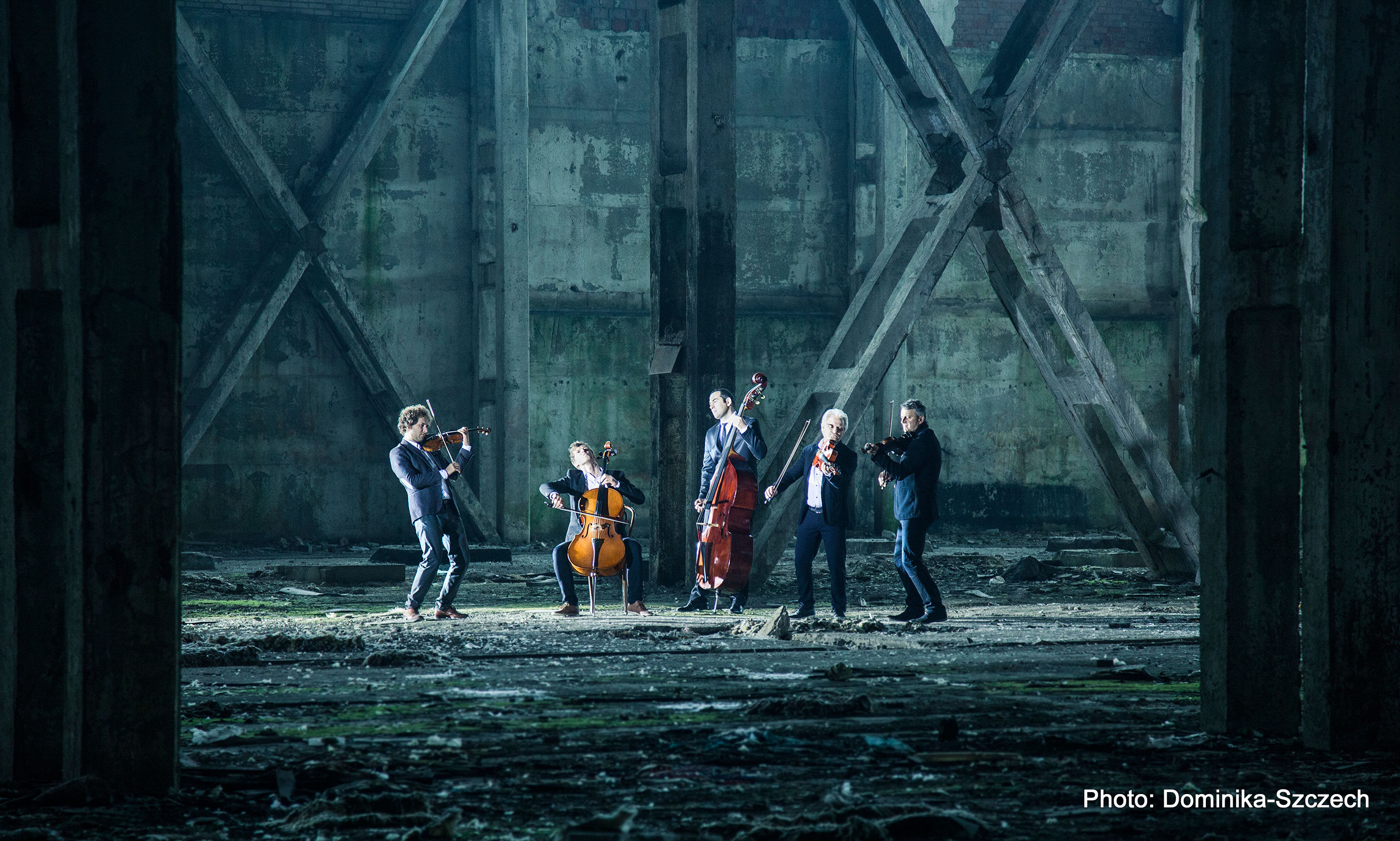 In the last 10 years you played worldwide, cooperated with many artists from Polish pianists through African musicians to Tibetan monks. Has this globe-trotting had an influence on your ‘music of Charpathians’?
In the last 10 years you played worldwide, cooperated with many artists from Polish pianists through African musicians to Tibetan monks. Has this globe-trotting had an influence on your ‘music of Charpathians’?
Absolutely! Not too much stylistically, but essentially it makes you think in a wider perspective. Though we are not so easy to mix with other bands as VOŁOSI is quite a mixture itself. What impresses me so much in Hungary is how highly rated is your own root music. The technical and artistic level is extraordinary and traditional musicians are among the most esteemed performers. This is very inspiring!
In March you are going to give a concert in Budapest, apropos of the 9th Violin Makers Salon, organised by Fonó Budapest. Musicians – especially string players – always have a very special bond with their instruments. I remember a story of an old master violinist from Gyimes (Eastern Charpathians). He told me that his violin could forecast the weather. Do you have a secret story of yours?
The weather can influence the violin, that’s for sure… But it’s true that we are bonded to our instruments, we can’t substitute them with any others, so for example, we always need to travel with our double bass, no matter how difficult it is. It’s crucial to have our own sound with us. Somehow we treat the whole band as one big instrument and it has to be as homogeneous as a piano keyboard.
We are looking forward to the Budapest concert a lot – we will share a few of our brand new compositions for the first time with the Hungarian audience.
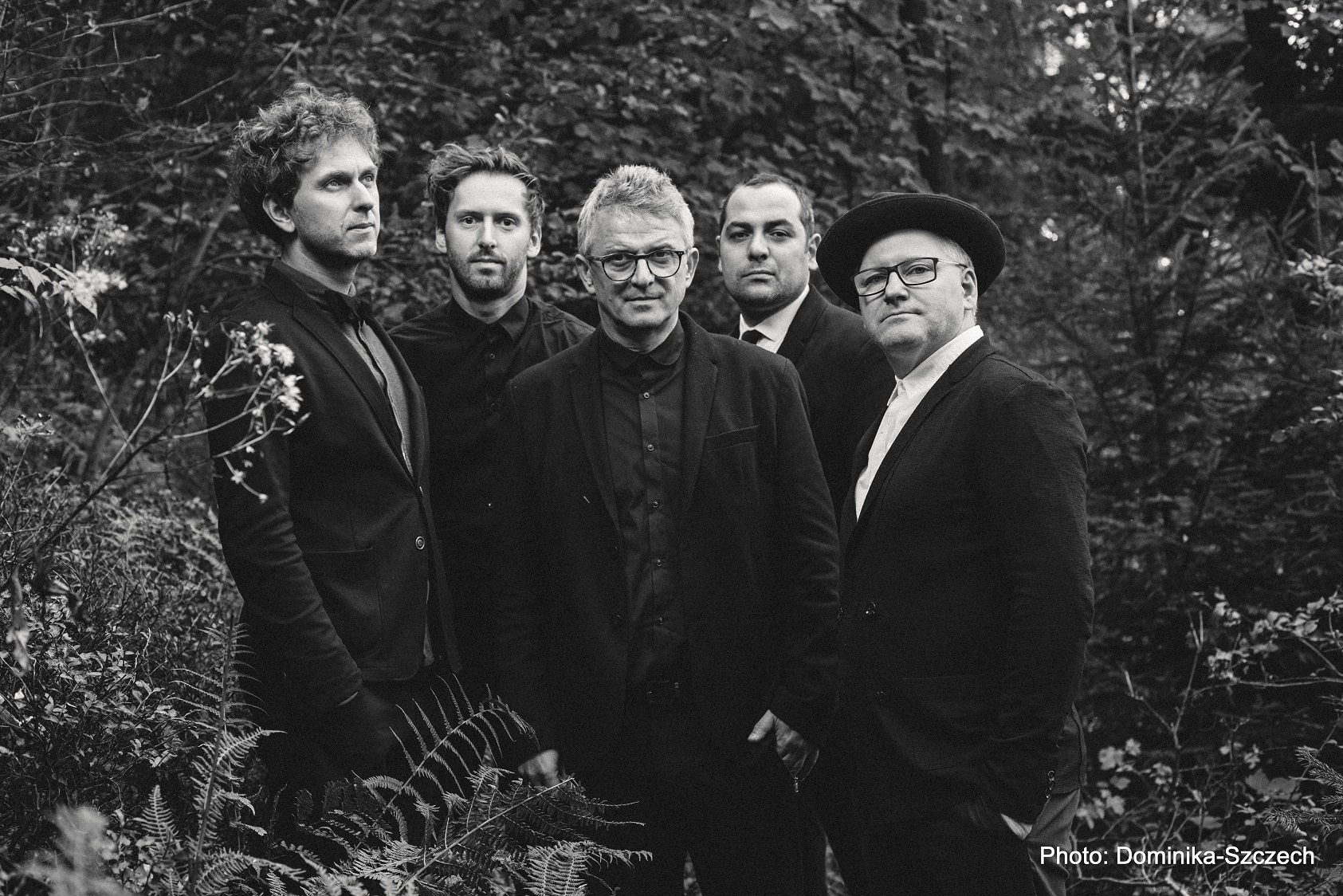
VOŁOSI (Poland):
KRZYSZTOF LASOŃ (violin)
ZBIGNIEW MICHAŁEK (violin)
JAN KACZMARZYK (three-stringed viola, pipes)
STANISŁAW LASOŃ (cello)
ROBERT WASZUT (double bass)
facebook
instagram
More Warsaw Return articles here
THE INTERVIEW WAS SUPPORTED BY THE WACŁAW FELCZAK FOUNDATION.
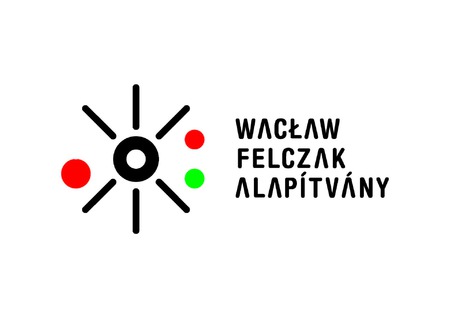

A bejegyzés trackback címe:
Kommentek:
A hozzászólások a vonatkozó jogszabályok értelmében felhasználói tartalomnak minősülnek, értük a szolgáltatás technikai üzemeltetője semmilyen felelősséget nem vállal, azokat nem ellenőrzi. Kifogás esetén forduljon a blog szerkesztőjéhez. Részletek a Felhasználási feltételekben és az adatvédelmi tájékoztatóban.
